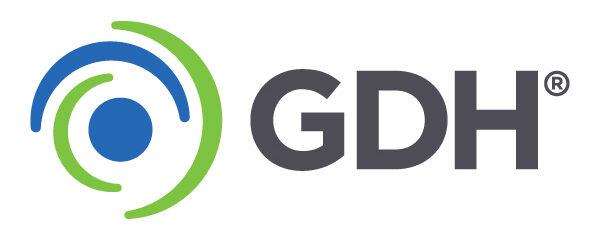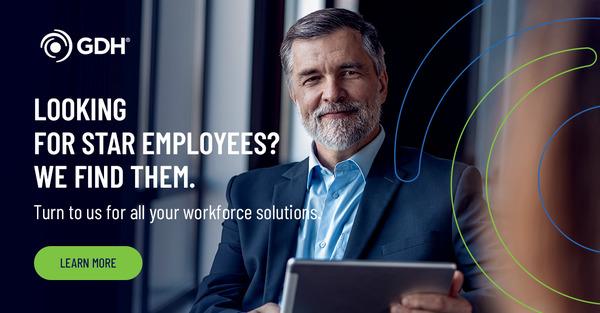Top Things to Look for in a Healthcare RPO in 2023
Healthcare recruiting doesn’t have to be frustrating or time-consuming. Here are ways to make sure you find a healthcare RPO provider that will locate the talent you need.
Read more: Top Things to Look for in a Healthcare RPO in 2023Recruitment process outsourcing (RPO) means a third party outside your company will handle some or all aspects of your recruiting process. Businesses use RPO when they need to hire larger-than-normal numbers of people in short periods or when their hiring teams don’t have the level of expertise needed to hire for particular positions or areas within the organization.
Some businesses don’t have the time or energy to implement in-house recruitment processes and need the help of RPO teams to find the talent they need. The beauty of RPO is it’s customizable, so whether your company needs a complete end-to-end hiring process or just has specialized needs in certain areas, RPO can help them hire staff as they need it.
Traditional recruiters charge large fees to hire for your company or they require the entire process to be turned over to them to get jobs done. RPOs are flexible and offer companies just what they need. No more, no less.
Healthcare RPOs
Figuring out how to get a job or hire staff in the healthcare field have both become more difficult because of COVID-19 restrictions, labor shortages from increasingly stressful environments, an aging population, and increasing specializations. It’s becoming harder for healthcare organizations to find the staff they need.
This is where a healthcare RPO can step in and become the recruiting apparatus for a healthcare organization. Even if the organization’s recruiting is sound, RPOs can extend their processes to cover unmet needs and help them plan for the future, but there are both pros and cons to healthcare RPOs that must be considered.
Advantages to Healthcare RPOs
Here are some of the advantages to using a healthcare RPO:
- Only pay for the services you need
- Specific expertise in particular areas and skillsets
- On-site services provided
- Scalable for when organizations grow faster or slower
- More affordable than traditional recruiting
- Can be seasonal
A healthcare RPO can save your company time and money on your hiring process while increasing the quality of your hires, but that doesn’t mean a healthcare RPO is right for every organization.
Disadvantages to Healthcare RPOs
Here are some of the disadvantages of using a healthcare RPO:
- Additional cost above current staff
- Costs paid even if positions aren’t filled
- Need to provide space on-site for recruiting staff
- Could be culture clashes
For certain situations, RPOs may not be needed or may be more costly than more traditional hiring processes. It’s important to evaluate your situation carefully before making a decision about a healthcare RPO.
Once you know the advantages and disadvantages of healthcare RPOs, you can focus on what to look for in an RPO in 2023.

Things to Look for in a Healthcare RPO
Industry Expertise
It’s important that your healthcare RPO have expertise in the healthcare industry or segment of the industry in which you need to hire. There are many complexities to healthcare hiring, and your healthcare RPO needs to know the nuances that make the difference between hiring average employees and getting the best talent your company can afford.
Strategic Thinking
Your company needs more than just resources for hiring. RPOs can be instrumental in helping you address skills gaps that need to be filled for a stable workforce and the best possible hiring outcomes. Other areas that need addressing from a strategic standpoint are retention and succession planning. Having the expertise to address these areas can save your organization a great deal of time and money on future hiring.
Understanding of Organization’s Needs
Besides industry-specific know-how, your healthcare RPO should have a deep understanding of your organization’s needs. Strategy meetings at the beginning of your contract can accomplish this, but you should make sure your particular RPO demonstrates this understanding before you make long-term commitments.
Accountability
How does the RPO measure its success in hiring for your organization? You should have ready access to the RPO’s data so you can see exactly what’s being done and how it’s working.
Transparency goes hand-in-hand with accountability. You won’t really know how you’re doing with hiring unless there are accountability measures in place to determine this.
Algorithmic Recruiting Techniques
Like many other industries, recruiting is increasing its use of AI to automate some parts of the process. This makes things faster and more accurate. Algorithmic recruiting techniques can automate candidate sourcing, screening, and onboarding, but they don’t always make decisions in fair and inclusive ways.
Algorithmic recruiting could be in wide use in a few years, but human workers will still be needed to oversee the process and audit the results of the algorithms to make sure unwitting discrimination isn’t occurring.
General Improvement
Unless a company uses an RPO from the beginning, there should be a general sense of improvement that can be seen after the RPO takes over some or all of the recruiting process. Some key things to look for include:
- Fewer open positions at a given time
- Projects completed on time or early
- Fewer disruptions to operations
- General employee morale improved
- Fewer budgetary issues
- Fewer “fires” to put out
Having metrics that quantify some of these is beneficial, but having a general sense that things are improving and the organization is running smoothly is one of the key reasons to use an RPO in the first place.
GDH provides healthcare RPO services to help organizations recruit faster and better. Looking for star employees? We find them.









